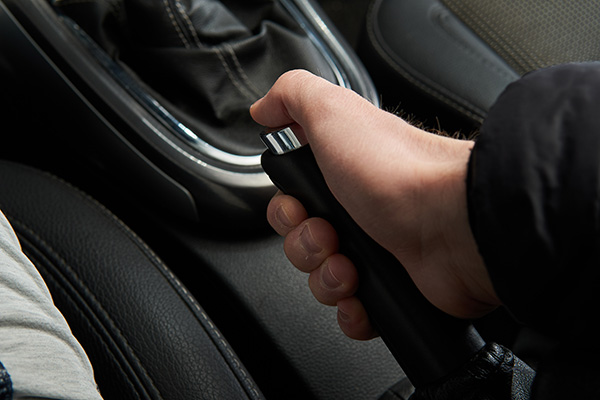
A failed parking brake can be a frustrating and even dangerous situation. You pull up the lever, expecting your car to stay securely in place, only to find it rolling unexpectedly. But what exactly causes a parking brake to fail? There are a few common reasons why your parking brake might not be working as it should, and understanding these can help you address the problem before it leads to bigger issues.
How the Parking Brake Works
The parking brake operates mechanically, unlike your regular brakes, which use hydraulic pressure. It typically connects via a cable to the rear wheels, applying pressure to hold the car in place when parked. In some newer vehicles, this system is electronic, but the fundamental principle remains the same. Any breakdown in this mechanism can result in failure, and the consequences can be more than just inconvenient.
Worn Out or Stretched Brake Cables
One of the most common reasons for a parking brake failure is a worn or stretched cable. Over time, the cable that connects the parking brake lever to the brakes can become frayed or stretched, leading to a lack of tension. This reduced tension means the brake pads or shoes don’t engage properly, resulting in a brake that doesn’t hold the car in place as it should.
If you find that your parking brake feels loose or isn’t engaging fully, having the cables inspected is a good idea. This is particularly important if your vehicle is older, as cables naturally wear down with extended use.
Corrosion or Rust in the Parking Brake System
Corrosion can be a silent enemy to many parts of your car, and the parking brake system is no exception. Salt, water, and general exposure to the elements can lead to rust in the cables, levers, or other parts of the system. When these components corrode, they may become less effective, or worse, they can seize up entirely. This is an especially common issue in areas with harsh winters or salty coastal air.
To prevent this, regular inspections and maintenance are key. If you live in an area where your car is exposed to salt or moisture regularly, it’s worth having your parking brake system checked more frequently to ensure there’s no rust buildup.
Brake Pads or Shoes Are Worn Out
Like the primary braking system, your parking brake relies on brake pads or shoes to hold the vehicle in place. Over time, these components wear down. When they’re too worn out, they won’t be able to hold the car, even if the parking brake lever seems to be functioning properly.
If your car rolls despite engaging the parking brake, it might be time to replace the brake pads or shoes. In some cases, you might hear a squeaking noise or feel less resistance when you pull the parking brake, which can indicate worn brake components.
Parking Brake Not Being Used Regularly
It might sound odd, but if you rarely use your parking brake, that could actually contribute to its failure. When the parking brake isn’t used frequently, the cables can become stiff or even corroded. The system is designed to be used regularly, and leaving it idle for extended periods can lead to reduced performance or failure when you do need it.
If you haven’t used your parking brake in a while, it’s a good practice to engage it occasionally to keep the system working properly. This is particularly important if you park on inclines or live in areas with varying terrain.
Incorrect Adjustment of the Parking Brake
The parking brake system must be properly adjusted to function effectively. If the cable isn’t tightened to the right tension, or the brake pads or shoes aren’t aligned correctly, the parking brake may not hold the car as it should. Sometimes, after brake repairs or maintenance, the parking brake system might not get readjusted properly, leading to a system that appears functional but doesn’t actually work as intended.
If you’ve recently had work done on your car’s brakes or parking brake system and are noticing problems, it might be worth having the adjustment checked by a professional.
Hydraulic or Electronic Parking Brake Failure
For cars with electronic parking brakes, failures can occur in the system’s sensors or hydraulic components. Since these systems don’t use a traditional cable and lever setup, the potential failure points are different but just as important to monitor. Problems with the electronic parking brake can often show up as warning lights on your dashboard, so if you see any brake-related warnings, it’s important to have them inspected right away.
Is your parking brake feeling loose or unreliable? Let KAMS Auto Service Center inspect and adjust your system to avoid unexpected rollaways. Book your appointment today!